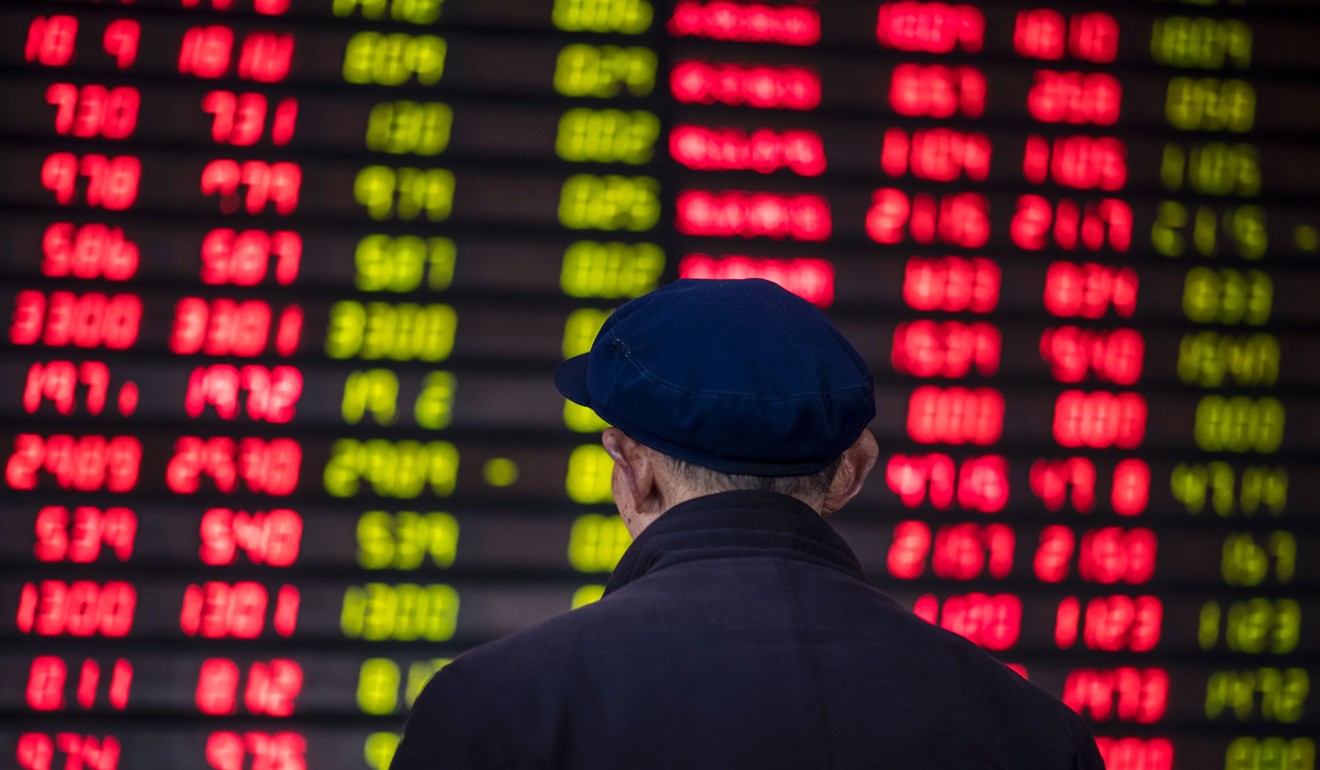
MSCI might give A-share nod to China this time, but regulator says business as usual either way
Analysts expect impact on A shares to be less significant in the short term, as fund inflows will be small given the scale of inclusion
After three rejections since 2014, MSCI is set to rule again on Wednesday whether it will accept China’s domestic A shares in its US$1.5-trillion emerging markets index.
While it may be the best chance so far for China to get the nod, many analysts anticipate the real impact will be minor as the resulting capital inflows will be limited in the short term.
A number of funds and investment banks are now favourable on MSCI’s acceptance of A shares, including Robeco, AXA Investment Managers, JP Morgan, Morgan Stanley, and China International Capital Corp (CICC).
However, Zhang Xiaojun, a spokesman for the China Securities Regulatory Commission, said Friday that “the pace of China’s reform” will not be affected by MSCI’s decision.
“China will be glad to see it happen, if MSCI decides to include A shares. But regardless of the result, the direction and pace of China’s capital market reform and opening up will not change,” he said at a press conference.
MSCI has rejected A shares repeatedly on concerns over accessibility for international investors, restrictions on repatriation of capital, and licensing restrictions imposed by Chinese authorities for A-share index products in overseas markets.
Given Beijing’s progress in clearing the hurdles and MSCI’s proposal in March to narrow the universe of stock picks, many analysts said this year represents the best chance for A shares to join the MSCI club. However, they also predicted the real impact to be small.
“Even if included, the symbolic significance is much bigger than the real impact on capital inflows to China,” said Li Lifeng, chief strategist for Sinolink Securities. “In the short term, it’s more of a boost to the general risk sentiment.”
The MSCI EM Index is followed by many global funds. Adding A shares to the index would trigger inflows into China’s domestic stock markets due to fund mandates.
However, since MSCI has narrowed the universe of stock picks to 169 from 448 previously and decided to only include initially 5 per cent of the free-float market cap, the expected capital inflow to China will be small.
Regardless of the result, the direction and pace of China’s capital market reform and opening up will not change
Theoretically, the initial inclusion could trigger fund inflows of 79.6 billion yuan (US$11.6 billion), Li estimated. The number pales in contrast to A shares’ current margin loan balance of 867 billion yuan and the daily trading turnover of 400 to 600 billion yuan.
“It looks like a mere drop in the bucket,” Li said. “Not to mention that the inflows will take place in a slow process.
However, Li conceded that in the long term the inclusion will encourage global investors to raise their China-related portfolio holdings, which would prompt A shares to go global.
Earlier last week, Morgan Stanley analysts Laura Wang and Jonathan Garner expressed similar views.
“Regardless of the outcome, we do not think there will be a meaningful impact at index level on the A-share market in the near term,” they wrote in a report.
They see a more than 50 per cent chance of MSCI adding A shares, which could boost the benchmark Shanghai Composite Index by 0.5 per cent to 1 per cent “on announcement”.
However, actual implementation would not take place until June 2018.
Besides, with a 5 per cent initial inclusion factor, eligible A-share stocks would represent only 0.5 per cent weight in the MSCI Emerging Markets index.

If MSCI says “No”, A shares may react with a 1 per cent decline, which is still “minor”, the analysts said.
Over the longer term, the inclusion will represent a “milestone” in China’s capital market development and integration with the rest of global markets, they added.
AXA Investment Managers also believe this year is the “best chance” for A shares to join the MSCI global equity indices.
Nonetheless, such an event does not “necessarily guarantee” large capital inflows immediately, especially if investors lack confidence in Chinese equities, AXA analysts Aidan Yao and Varun Ghotgalkar wrote in a research report.
They expect US$1.6 billion of initial flows into the A-shares market from global passive exchange-traded funds tracking various MSCI indices.
On the other side, a few investment institutions hold more conservative views on the probability of MSCI’s acceptance.
UBS Wealth Management earlier last week said there could be a less than 50 per cent chance for A shares to get approved this time around given the biggest remaining hurdle – the required CSRC approval for foreign institutions to launch any A-share linked derivative in overseas markets.
Goldman Sachs recently reduced its forecast of the odds to 60 per cent from last year’s 70 per cent due to investors’ remaining concerns on capital repatriation and approval restrictions on derivative products.
The Goldman analysts predicted the impact to be bigger in the long term, as the inclusion of A shares could encourage inflows of US$210 billion over the next five years.
Additional reporting by Zhang Shidong

